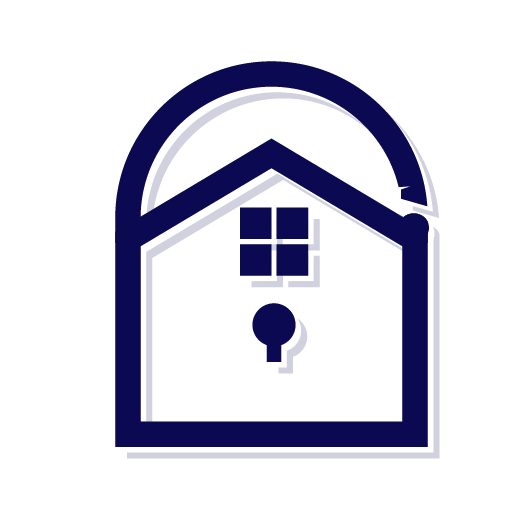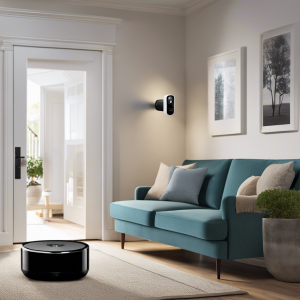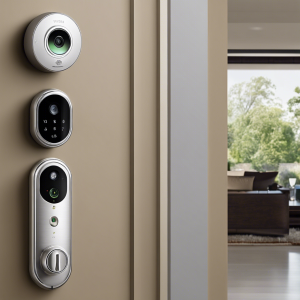In today’s fast-paced world, home security systems have become an essential part of protecting our homes and loved ones. However, what if these systems could do more than just prevent break-ins and detect fires?
Enter the world of medical alert capabilities in modern home security systems. These innovative features offer a new level of safety and peace of mind, particularly for individuals with medical conditions or elderly family members.
But how exactly do these medical alerts work, and what benefits do they provide? In this discussion, we will explore the integration of medical monitoring devices into home security systems, the importance of these features, and how to choose the right system to suit your specific needs.
Stay tuned to discover how this evolving technology is changing the landscape of home security.
Importance of Medical Alert Features
The importance of medical alert features in home security systems cannot be overstated. These features play a crucial role in emergency response, ensuring that individuals in need of medical assistance can quickly and easily contact the appropriate authorities or healthcare professionals. With advancements in medical alert technology for home security systems, these features have become even more effective and reliable.
One of the key roles of medical alert features in emergency response is providing immediate access to help in critical situations. In the event of a medical emergency such as a fall, heart attack, or stroke, time is of the essence. Medical alert systems equipped with features like panic buttons or wearable devices allow users to quickly alert emergency services, providing them with the necessary information and location details to initiate a rapid response. This can be particularly beneficial for elderly individuals or those with chronic medical conditions who may require immediate medical attention.
Advancements in medical alert technology have further enhanced the effectiveness of these features. Modern home security systems now offer features such as automatic fall detection, which can automatically trigger an alert if a fall is detected. This removes the need for the user to manually activate the alert, ensuring that help is summoned even if the individual is incapacitated or unable to press a panic button. Additionally, many medical alert systems now offer GPS tracking capabilities, enabling emergency services to quickly locate and reach the individual in need, regardless of their location within the home.
How Medical Alerts Work in Home Security Systems
How do medical alerts function within home security systems to ensure the safety and well-being of individuals in need of medical assistance?
Home security technology has advanced significantly in recent years, and medical alerts have become an integral part of these systems. These alerts work by providing individuals with a quick and efficient way to request emergency response in case of a medical emergency.
Medical alerts in home security systems typically consist of a wearable device, such as a pendant or a wristband, that is equipped with a panic button. When a medical emergency occurs, the individual can simply press the panic button, which triggers an immediate alert to the home security system’s central monitoring station. This station is staffed by trained professionals who can quickly assess the situation and dispatch emergency responders if necessary.
The home security system’s central monitoring station plays a crucial role in ensuring the effectiveness of medical alerts. Once the panic button is pressed, the station receives the alert and establishes communication with the individual in need of assistance. This communication can be through a two-way voice system, allowing the individual to explain the situation and receive guidance until help arrives.
Additionally, home security systems with medical alert capabilities often allow individuals to provide important medical information in advance. This information may include details about existing medical conditions, allergies, medications, and emergency contacts. By having this information readily available, emergency responders can provide more targeted and efficient care.
Benefits of Medical Alert Capabilities
Medical alert capabilities in home security systems offer numerous advantages for individuals in need of medical assistance. These features provide a sense of security and peace of mind, knowing that help is just a button press away. Here are some of the benefits of having medical alert capabilities in your home security system:
- Quick emergency response: With medical alert capabilities, users can quickly request emergency assistance with just a push of a button. This ensures that help arrives promptly, potentially saving lives in critical situations.
- 24/7 monitoring: Home security systems with medical alert capabilities often include round-the-clock monitoring services. This means that trained professionals are always available to respond to emergency situations, even if the user is unable to speak or communicate.
- Remote monitoring: Some medical alert systems offer remote monitoring capabilities, allowing healthcare professionals or family members to monitor the user’s health and well-being from a distance. This can be especially beneficial for individuals with chronic illnesses or those who live alone.
- Peace of mind for caregivers: Medical alert capabilities not only benefit the users but also provide peace of mind for their caregivers. Knowing that their loved ones have access to immediate help in case of an emergency can alleviate stress and worry.
Integration of Medical Monitoring Devices
Integration of medical monitoring devices enhances the functionality and effectiveness of home security systems. By incorporating wireless technology and emergency response capabilities, these devices provide an added layer of protection and peace of mind for individuals and their loved ones.
Medical monitoring devices, such as wearable devices or sensors placed in strategic locations throughout the home, can continuously monitor an individual’s vital signs and detect any abnormalities or emergencies. These devices can transmit real-time data to the home security system, alerting both the homeowner and emergency responders in case of a medical emergency. This integration allows for quicker response times and potentially life-saving interventions.
To illustrate the benefits of integrating medical monitoring devices into home security systems, the following table provides a comparison of key features and functionalities:
| Features | Medical Monitoring Devices without Integration | Medical Monitoring Devices with Integration |
|---|---|---|
| Continuous monitoring | Yes | Yes |
| Real-time data transmission | No | Yes |
| Emergency alerts | Yes | Yes |
| Integration with home security system | No | Yes |
| Emergency response | Delayed | Immediate |
As seen in the table, integrating medical monitoring devices with home security systems allows for real-time data transmission and immediate emergency response, improving the overall effectiveness of the system. This integration ensures that help is promptly dispatched in case of a medical emergency, potentially reducing the severity of the situation and improving the chances of a positive outcome.
Choosing the Right Home Security System for Medical Alerts
When selecting a home security system that includes medical alert capabilities, it is important to consider key factors that will ensure the system meets the specific needs of individuals requiring medical monitoring and emergency response. Here are some factors to consider when selecting a medical alert home security system:
- Ease of use: Look for a system that is user-friendly and easy for individuals with limited mobility or cognitive impairments to operate. This includes features such as large buttons, voice prompts, and simple interfaces.
- Range and coverage: Consider the range of the system and ensure it covers the entire living space, including outdoor areas such as the yard or driveway. This is particularly important for individuals who may be at risk of falls or accidents outside the home.
- Monitoring and response: Evaluate the monitoring and response capabilities of the system. Look for features such as 24/7 monitoring by a professional monitoring center, rapid response times, and the ability to communicate directly with emergency services.
- Integration with medical devices: If the individual requires specific medical devices, such as a heart rate monitor or blood pressure cuff, ensure that the security system can integrate and communicate with these devices. This allows for seamless monitoring and alerts in case of any medical emergencies.
When comparing the effectiveness of different medical alert features in home security systems, consider how well each system meets the specific needs and requirements of the individual. Look for features such as fall detection, medication reminders, and the ability to customize alerts based on specific medical conditions. Additionally, read reviews and testimonials from other users to get a sense of how well the system performs in real-life emergency situations.
Frequently Asked Questions
Are Medical Alert Capabilities Only Available in Premium or High-End Home Security Systems?
Medical alert capabilities in modern home security systems are not limited to premium or high-end options. There are cost-effective alternatives available in the market that offer medical alert features along with basic home security functionalities.
Additionally, these systems often integrate with wearable devices, such as smartwatches or pendants, allowing users to easily trigger emergency alerts from anywhere in their homes.
This ensures that individuals with medical conditions or elderly individuals can have access to medical assistance in case of emergencies, regardless of their budget constraints.
Can Medical Alert Features Be Customized to Fit the Specific Needs of Individuals With Different Medical Conditions?
Yes, medical alert features can be customized to fit the specific needs of individuals with different medical conditions.
There are various customization options available in modern home security systems that allow users to personalize their medical alert settings.
These systems are compatible with different devices such as wearable devices, smartphones, and tablets, ensuring that individuals can access medical assistance in a way that best suits their condition and preferences.
This level of customization enhances the effectiveness and usability of medical alert capabilities in home security systems.
How Do Medical Alerts in Home Security Systems Differ From Traditional Medical Alert Systems?
Medical alerts in home security systems differ from traditional medical alert systems in several ways.
Firstly, they offer the advantage of being integrated into a comprehensive home security system, providing round-the-clock monitoring and immediate response in case of emergencies.
Additionally, these systems can be customized to fit the specific needs of individuals with different medical conditions, ensuring that the right help is provided promptly.
Furthermore, the integration of medical alert systems with smart home technology allows for seamless communication and coordination between the alert system and other smart devices in the home.
Are Medical Alert Capabilities in Home Security Systems Suitable for Seniors Living Alone?
Medical alert capabilities in home security systems offer several advantages for seniors living alone. These systems provide a sense of security and peace of mind, as they enable immediate access to emergency assistance in case of medical emergencies.
Moreover, they offer added convenience by integrating medical alert features into existing home security systems.
However, it is important to consider potential drawbacks, such as the reliance on technology and the possibility of false alarms. Seniors should carefully evaluate their specific needs and preferences before opting for such systems.
Can Medical Alert Devices in Home Security Systems Be Connected to Emergency Services Directly?
Medical alert devices in home security systems have the potential to be connected directly to emergency services, providing several advantages. This direct connection allows for immediate response in case of a medical emergency, ensuring timely assistance. It eliminates the need for a separate medical alert system, simplifying the setup and reducing costs.
However, there are also potential drawbacks to consider, such as false alarms and the need for a reliable internet connection. Therefore, it is essential to carefully evaluate the pros and cons before opting for this feature.



